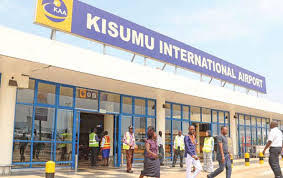In a move to foster regional trade and unlock the economic potential of the Western Kenya, the government is planning on turning the Kisumu International Airport into an expansive cargo and logistics hub. As part of an effort to decenter Jomo Kenyatta International Airport as the major export station, it aims to reposition Kisumu as a critical gateway for agricultural exports to global markets, particularly Europe and the Middle East. The airport currently operates below its potential, with cargo traffic being riddled with irregular cargo and insufficient infrastructure for cold storage which would be beneficial for storage of perishable goods. Fortunately, that’s all about to change.
The Kenyan government is embarking on an ambitious expansion of Kisumu International Airport by constructing a cargo section, as part of a KES 4.9 billion expansion of the airport. Key developments include extending the runway and constructing a state-of-the-art cargo terminal equipped with cold storage facilities. These developments are meant to support direct export of perishable goods such as fish and green vegetables to International markets such as Europe.
In January 2022, Kisumu International Airport made a significant step in international trade by making its first cargo flight in over a decade by transporting 16 tonnes of fresh chilies to the United Kingdom, marking the reinvention of its position in the international trade sector. The airport now projects to exporting over 42 tonnes of fresh produce weekly, including avocados, fish, chilies, fruits and green vegetables.
The expansion of the airport is also fostered by public-private partnerships. For instance, the Kisumu Lakefront Development Corporation in partnership with the Kenya Airport Authority and Kenya Airways are leading the charge in establishing a cargo village which is a dedicated logistics hub, typically located within or adjacent to an airport, designed to facilitate the efficient handling, storage, and distribution of air freight. They are critical in optimizing the supply chain by streamlining cargo processing, reducing turnaround times, and supporting multimodal transport connectivity. This initiative aims to join cargo airlines, freight forwarders, farmers and fish traders, which will foster a cohesive export ecosystem.
The upgrade of the Kisumu International Airport is projected to induce economic growth in western Kenya and Kenya at large. Local stakeholders such as farmers and local fishermen will have access to the international markets by providing a direct export channel. This will lead to increased income and encourage diversification into high value crops such as grapes which would be essential for wine making. This will also foster economic growth in Kisumu County due to the employment opportunities created.
With the planned infrastructure developments in place, the Kisumu International Airport is set to become an integral player in Kenya’s Agricultural export scene. This plan also promises the rise in the standard of living for people in the Lake Region and places Kenya as an important player in global trade.


















